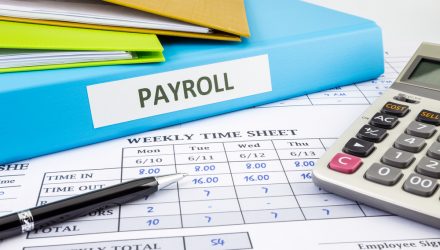U.S. government bond yields rose and Treasury-related exchange traded funds declined Friday after the Labor Department showed the unemployment rate dipped to its lowest level since the coronavirus pandemic.
On Friday, the iShares 7-10 Year Treasury Bond ETF (IEF) fell 0.5% and the iShares 20+ Year Treasury Bond ETF (NasdaqGS: TLT) decreased 1.4%. Yields on benchmark 10-year Treasury notes rose to 1.287%, while yields on 30-year Treasuries were at 1.935%. Bond yields and prices have an inverse relationship.
The U.S. unemployment rate dipped to 5.4% in July, as compared to economists’ expectations of a 5.7% rate, the Wall Street Journal reports.
“Today’s bumper payrolls report highlights a roaring recovery in the labor market and increases the chances of the Fed tapering their asset purchases sooner rather than later,” Mike Bell, global market strategist at JPMorgan Asset Management, told Bloomberg.
The better-than-expected increase in U.S. non-farm payrolls showed continued momentum in the U.S.’s economic recovery. Traders will now be looking out for data on prices next week and inflation pressures ahead of the Jackson Hole meeting later this month.
“When you rub all that together you have an economy that’s been in recovery for a year,” David Petrosinelli, senior trader at InspereX, told Bloomberg. “I think that’s going to force the Fed’s hand a little bit on being a bit more deliberate on the language vis-a-vis tapering to try to cool things down.”
Treasury yields have recently dipped on growth concerns in the face of rising infection rates from the delta variant. However, many are betting that the improving economic environment will outweigh any short-term growth scares from the spike in new coronavirus cases.
“While the rise in Covid cases due to the delta variant is concerning in the near term, it is difficult to imagine this being a longer-term headwind for the US economy,” Citi analysts wrote in a note. “It does not make a lot of sense to assume that rates one year, two years and longer from now will stay depressed because of Covid variants.”
For more news, information, and strategy, visit the Fixed Income Channel.

